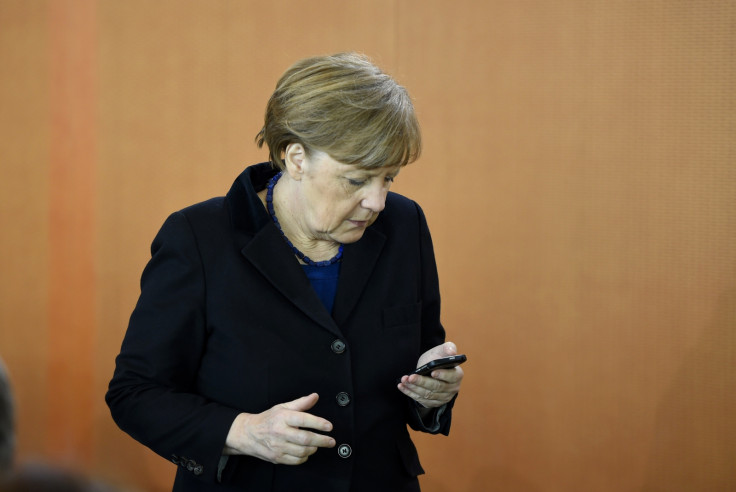Angela Merkel hacked: Bundestag computers targeted with malware by Russian cyberattack

A cyberattack against the German Bundestag, being attributed to Russian hackers, compromised the personal computer of Chancellor Angela Merkel and used it to spread the malware.
The latest news from the highly disruptive attack comes from German newspaper Bild which claimed on Sunday (14 June) that Merkel's computer in her office in the lower house of the parliament was among the first devices on which the Trojan-style malware was discovered.
The report claims that once the hackers had access to Merkel's computer, they used this access to send phishing emails to other Bundestag employees which purported to be an invite to a conference but in fact contained a link which - if clicked - would download the malware to the victim's computer.
A spokesperson for Merkel's Christian Democratic Union refused to confirm or deny the claims made by Bild.
Last week German media reported that the attack has affected up to 20,000 PCs and that the malware was still communicating with the hackers, sending back sensitive data. The havoc created by the attack could see all affected computers having to be replaced at a cost of several million euros.
However the report from Bild claims the malware was found on just 15 computers and that data has been captured from just five of those computers.
Russian hackers
RT reports that German domestic intelligence service head, Hans-Georg Maassen, told a conference on Thursday (11 June) that the latest attack may have been carried out by a "foreign intelligence service".
A report from Der Spiegel goes one step further, quoting sources from within an internal investigation into the attack who claim the origin was a Russian intelligence agency.
However as we saw recently, attribution in cyberspace is a very tricky thing to get right.
Angela Merkel is no stranger to being the victim of cyberattacks. Back in January a group of pro-Russian hackers called CyberBerkut claimed responsibility for attacking Merkel's own website and knocking it offline along with a number of other German government sites.
Previously, documents leaked by whistle-blower Edward Snowden have alleged that the National Security Agency (NSA) had tapped Merkel's phone which led to a strained relationship between the two nations. On 12 June, the Germany said it was dropping an investigation into the claims.
© Copyright IBTimes 2025. All rights reserved.





















